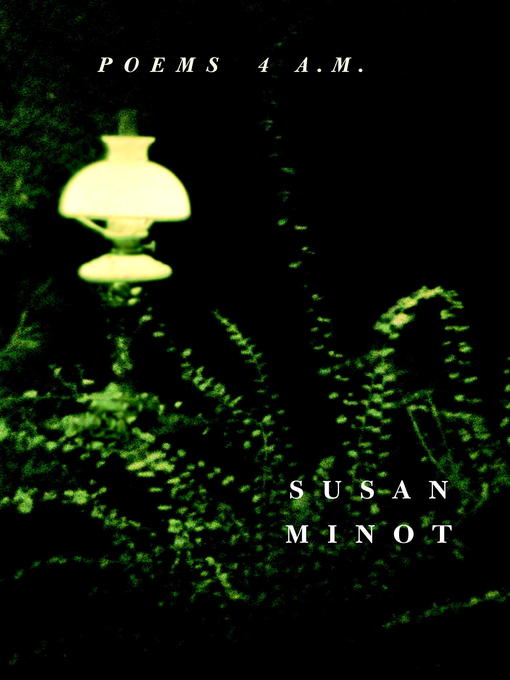
Poems 4 A. M.
کتاب های مرتبط
- اطلاعات
- نقد و بررسی
- دیدگاه کاربران
نقد و بررسی

April 29, 2002
When an acclaimed novelist suddenly switch-hits with a book of verse and publishes it as part of a high-profile poetry list, some regular readers of poetry fear the worst: that the book will be bad, and that it will get a lot of attention. Minot, author of Rapture, Evening
and Monkeys, negotiates this thorny territory reasonably well, turning in a somber, carefully wrought performance that neither fully embarrasses nor especially impresses, and that will please fans looking for some of the emotional bases of her characters. Split among nine short, locale-named sections ("Massachusetts," "Long Island," "Rome," "New York City," "Tuscany," etc.), these nearly 50 poems seem, more than anything else, to be an attempt at New Yorker–style rhymed commentary on upper-class life, as in the opening Eliotic riff: "I hear them behind me/ crossing Persian rugs on heel-less shoes,/ drinking Dubonnet, eating nuts/ (from the pantry the smell of stew),/ talking about naval battles/ and varsity crew,/ their voices raspy with cigars/ in underheated rooms." From there, it's on to a "Sonnet on Being Touched" ("It changed my blood entire"), "Defending Despair While Balancing on Cobblestones," "Ducking the Paparazzi" and watching, from a Martha's Vineyard perch, "Dawn in a Chilmark Barn": "In the thin morning air I saw/ clearly/ what thickens through the day/ —otherwise it's too much to bear—/ that it only ends this way." Whether reporting on lost or distressed love, taking refuge in "roast chicken for lunch" or absorbing the incomprehension of others, the flat effect of Minot's narrator, deployed in her fiction to foreground the foibles of her characters, will be instantly recognizable to readers of the novels. Stripped of that function here, the poems are simply flat.

May 1, 2002
Minot's accomplished fiction, including " Evening" (1998) and " Rapture" [BKL D 15 01], is undeniably poetic, so it's not surprising to learn that she writes poetry as well. The connection to her fiction is also obvious in her poetry's subject matter and mood: these are poems of sexual passion and emotional turmoil. Tied vividly to place-- Massachusetts, New York, Italy--these are laments and regrets in the stunned aftermath of erotic encounters that prove to be loveless for him, unforgettable for her. As in her fiction, Minot's power is generated by the tension between the spareness of her style and the wildness of the feelings she seeks to restrain rather than express. What Minot can't suppress, nor should she, is her storytelling impulse, because the best of her poems are hauntingly anecdotal. Small in scope, albeit graced by alluring wit, refined brooding, and tough sexiness, these works are actually verse not poetry. This won't deflect Minot's fans, and, in fact, her poems offer an enticing introduction to contemporary poetry for curious but hesitant readers.(Reprinted with permission of Booklist, copyright 2002, American Library Association.)

























دیدگاه کاربران